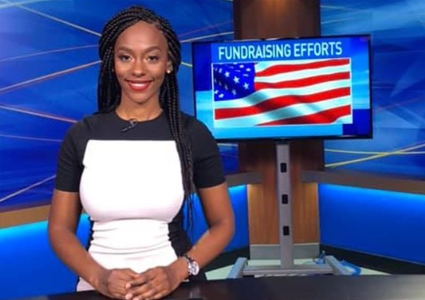Polling

Media diversity

As our nation’s population grows more diverse, a number of people hope our media, particularly its broadcasters, can better reflect this diversity. The most common ethnicity of American news anchors is White (66.7%), followed by Hispanic or Latino (12.6%), Asian (9.7%) and Black or African American (6.4%). Advocates say media diversity is one of the most consequential factors shaping how Americans of all colors and backgrounds view themselves and each other. Studies show that bias in media portrayals continues to perpetuate negative attitudes towards minority communities and fuel our country’s divisions. Advocates say diversity in media matters because it brings attention to an otherwise underrepresented community and gives a voice to the otherwise voiceless.
The primary argument against media diversity is rooted in the broader political and ideological backlash against Diversity, Equity, and Inclusion (DEI). Critics contend that such efforts are divisive and can lead to reverse discrimination, while also citing risks concerning data privacy and effectiveness. Supporters of media diversity claim the pandemic, economic meltdown, election and protests have all exposed the inadequacies in the coverage of these events by traditional media outlets. Lacking the knowledge or experience of living through racism, poverty and marginalization, many broadcasters are unable to emphasize or connect with the subjects of their reporting. Advocates say in addition to hiring more broadcasters diversified by race, gender, gender identity, and sexual orientation, media ownership must diversify as well.
Pending Legislation: S.2123 - Broadcast VOICES Act
Sponsor: Sen. Gary Peters (MI)
Status: Senate Committee on Finance
Cahir: Sen. Mike Crapo (ID)
The primary argument against media diversity is rooted in the broader political and ideological backlash against Diversity, Equity, and Inclusion (DEI). Critics contend that such efforts are divisive and can lead to reverse discrimination, while also citing risks concerning data privacy and effectiveness. Supporters of media diversity claim the pandemic, economic meltdown, election and protests have all exposed the inadequacies in the coverage of these events by traditional media outlets. Lacking the knowledge or experience of living through racism, poverty and marginalization, many broadcasters are unable to emphasize or connect with the subjects of their reporting. Advocates say in addition to hiring more broadcasters diversified by race, gender, gender identity, and sexual orientation, media ownership must diversify as well.
Pending Legislation: S.2123 - Broadcast VOICES Act
Sponsor: Sen. Gary Peters (MI)
Status: Senate Committee on Finance
Cahir: Sen. Mike Crapo (ID)
Suggestion
Poll Opening Date
November 3, 2025
Poll Closing Date
November 9, 2025
